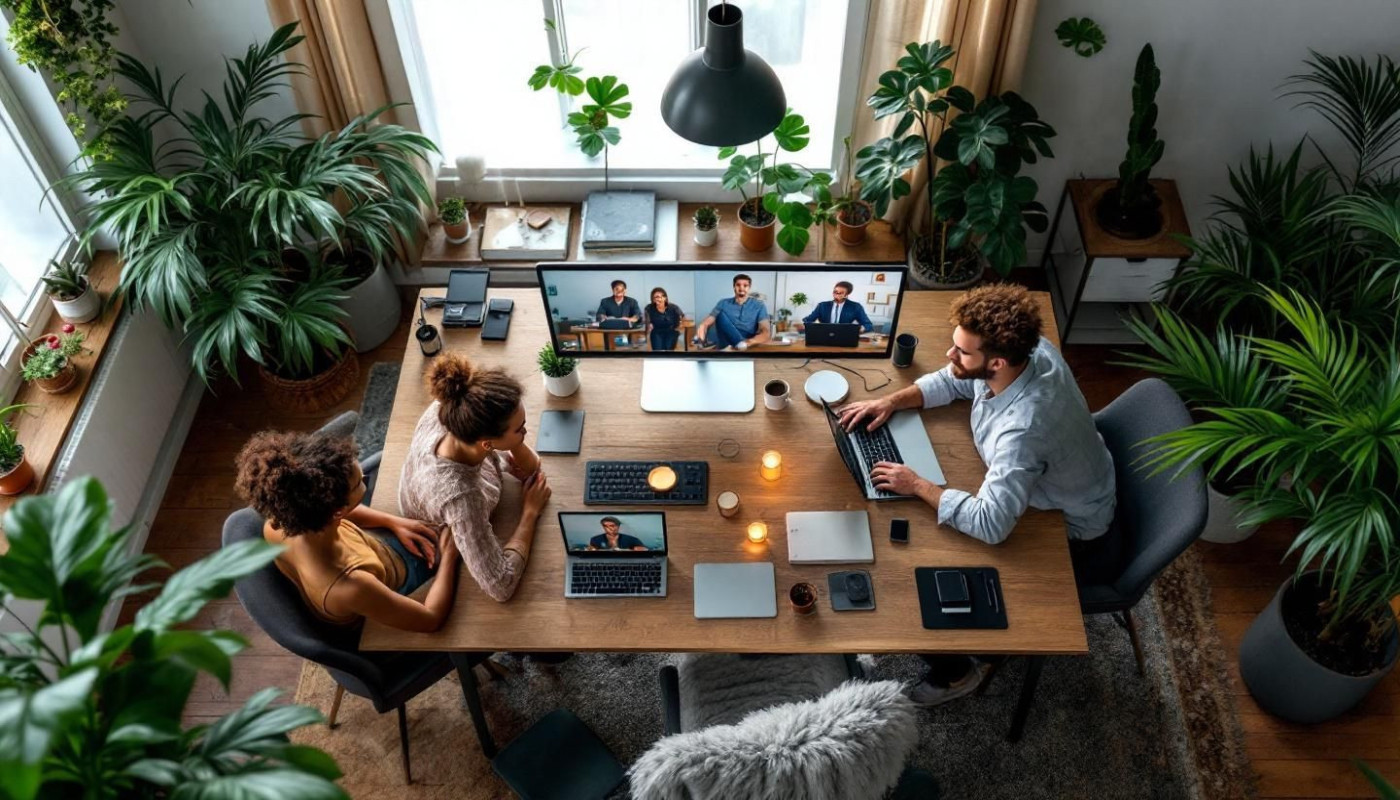Table of contents
In an age where digital footprints are as common as carbon ones, the influence of social media on our lives is undeniable. With screens often being the first thing we see in the morning and the last at night, it's no wonder that the content we consume can have a profound effect on our perceptions and beliefs—especially regarding body image and self-esteem. As we scroll through endless feeds, the portrayal of 'ideal' physiques and lifestyles can infiltrate our self-perception, often leaving us feeling inadequate. This topic is not only timely but also deeply relevant, as it touches on the psychological and emotional aspects of our digital interactions. It beckons a closer examination of how curated content shapes our self-concept and the collective psyche of society. Engage with the following exploration to understand the complex interplay between social media and personal self-worth, and consider how this virtual mirror is reflecting back on us. Let's delve into this enthralling subject, unraveling the threads of social media's influence on our self-view, and discovering strategies to foster a healthier body image and bolster self-esteem in the digital era.
The Mirror Effect: Social Media's Reflection on Body Image
Social media platforms serve as a contemporary mirror, reflecting back an altered reality of ideal body types that frequently distorts self-perception. As users scroll through their feeds, they are inundated with meticulously curated images that often represent unattainable standards of beauty. This onslaught of visuals triggers social comparison, a psychological process where individuals gauge their worth based on how they stack up against others. It's an insidious cycle that can significantly skew body image, fostering a sense of inadequacy and dissatisfaction with one’s own appearance.
Contributing to the issue is the ubiquity of image editing tools, which ensure that the majority of images viewed are not raw depictions but rather altered versions that amplify societal standards of beauty. This pervasive pressure to conform can lead to intense scrutiny over one's physical attributes and a relentless pursuit to emulate what is often a digitally-manipulated facade. In extreme cases, the constant barrage of these highly idealized images can spiral into body dysmorphia, a mental health disorder characterized by an obsessive focus on perceived flaws in appearance, far removed from the reality of natural human diversity.
The implications of this are profound, as the dissatisfaction stemming from these skewed perceptions can have a lasting impact on an individual's self-esteem and overall mental well-being. A psychologist or social media researcher, delving into the intricacies of human behavior in the digital age, would shed light on the deep-seated consequences of these virtual comparisons. It's vital for society to understand the potent effects that social media can have on body image and take steps to counteract the negative influences it may harbor.
Scrolling Through Self-esteem: The Metrics That Matter
In the digital landscape of social media, engagement metrics such as likes, comments, and shares have inadvertently become a barometer for self-worth. This quantification of popularity can significantly influence an individual's self-esteem, with younger users being particularly vulnerable. Digital media experts suggest that the affirmation received through these metrics can create a feedback loop, where users equate their value with the level of engagement they receive. Studies have consistently linked heavy social media use to self-esteem issues, revealing a correlation between the craving for likes and comments and the deterioration of one's self-perception.
Social media studies serve as a testament to these findings, with developmental psychologists warning about the long-term implications of this new social currency. The digital age has ushered in an era where numerical indicators of popularity are public and measurable, leaving individuals—especially impressionable teens—to grapple with its impact on their mental health. The overarching narrative suggests that our digital personas and the reaction they elicit play a defining role in shaping our self-esteem in the real world.
It's becoming increasingly recognized that taking breaks from these platforms, engaging in real-world activities, or finding alternative forms of self-affirmation can alleviate some of the pressures brought on by these online metrics. Some individuals find respite in activities that are entirely disconnected from social media, such as physical wellness practices. For example, an ice bath company uk might promote methods for stress relief and self-care, offering a contrast to the relentless pursuit of digital approval.
Navigating the Virtual Landscape: The Age Factor
The differential influence of social media on individuals can be significantly stratified by age. Adolescent vulnerability to the pressures of online environments is particularly pronounced. During this critical developmental stage, young people are forging their identities and self-perceptions, making them more susceptible to the standards and expectations set forth by social media norms. The body image impact for these younger users can be profound, as their self-esteem may be tightly woven with the validation received through likes, comments, and shares. Early exposure to idealized body types and lifestyles proliferated on these platforms can set unrealistic benchmarks for physical appearance and personal achievement.
While the conversation often centers on younger users, adults are not insulated from these phenomena. Adult self-perception can also be shaped and, at times, distorted by the relentless visibility of 'perfect' lives and bodies on social media. The persistent comparison with peers and celebrities can erode an adult's self-esteem, leading to dissatisfaction and negative body image. The expertise of a sociologist or a clinical psychologist would add depth to our understanding of these complex dynamics, as they can provide insights into the social and psychological underpinnings of this pervasive issue.
Reshaping Reality: The Role of Communities and Conversations
While much discourse around social media's impact on body image leans towards its negative effects, there exists a profound potential for these platforms to foster supportive communities that uplift and advocate for body positivity. By consciously choosing to curate feeds with content that celebrates diverse body types and inclusive beauty standards, users can transform their online environments into a source of encouragement and empowerment. Engaging in and driving conversations that challenge the deeply entrenched norms of physical appearance does not only contribute to individual self-esteem but also catalyzes a broader cultural shift towards acceptance and diversity.
Moreover, understanding and utilizing social media algorithms is a powerful strategy for users to ensure their online sphere is populated with body-positive content. As a mental health advocate or community organizer well-versed in these dynamics, one can guide individuals to navigate these platforms in ways that prioritize mental well-being. By actively interacting with positive content and communities, users prompt algorithms to show them more of such healthful content, thereby creating a self-sustaining cycle of positive reinforcement and support.
Building Resilience: Strategies for Healthy Digital Consumption
In navigating the complex landscape of online platforms, it's pivotal for individuals to establish strategies that foster resilience against the potential negative effects of social media on body image and self-esteem. A cornerstone of maintaining a healthy digital diet involves setting boundaries around the time and emotional energy invested in social media platforms. By consciously limiting exposure, individuals can create a buffer against the incessant influx of idealized images and narratives.
Moreover, media literacy education is an instrumental tool in discerning the curated nature of content that often skews perceptions of reality. This education empowers users to critically evaluate the messages and values being presented, thereby mitigating their impact. Equally noteworthy is the role of offline activities in preserving self-esteem. Engaging in hobbies, sports, and face-to-face social interactions provides a counterbalance to online life, reinforcing a sense of self-worth and competence outside the digital realm.
Encouraging critical thinking about the media consumed can also act as a protective measure. Users who question the authenticity and motives behind posts are less likely to accept them at face value, thus reducing the likelihood of internalizing harmful standards. In the realm of therapeutic interventions, cognitive-behavioral approaches can be particularly effective in addressing the cognitive distortions that arise from digital consumption. Mental health professionals advocate for these approaches as they emphasize the development of skills to challenge and reframe negative thought patterns linked to social media use. By implementing these strategies, individuals can cultivate a more balanced and self-affirming engagement with social media.
On the same subject

Exploring The Power Of Non-Invasive Facial And Body Sculpting Techniques

Navigating mental health support options for remote workers

Exploring The Effectiveness Of Daily Vitamin C Intake On Skin Health

Understanding The Role Of Medical Intuitives In Health Management

